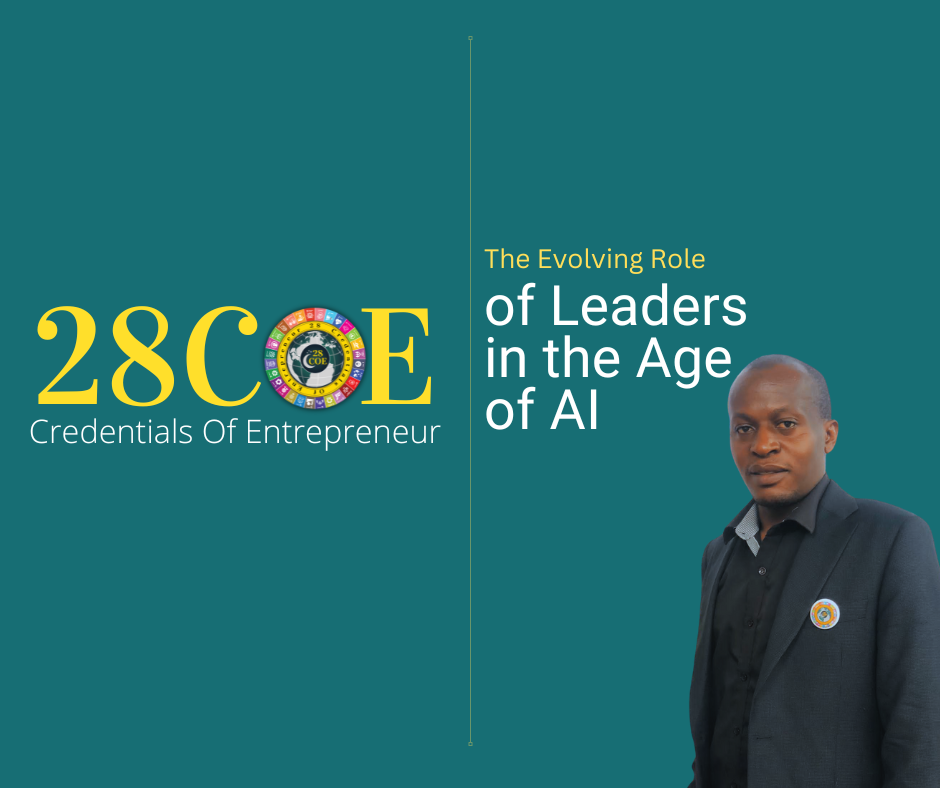In an era where artificial intelligence (AI) is revolutionizing industries and redefining business landscapes, the role of leaders is undergoing significant transformation. This evolution is driven by the need to integrate AI into business strategies, manage AI-driven processes, and harness AI’s potential to innovate and stay competitive. Platforms like 28COE, the “28 Credentials of Entrepreneur,” exemplify this shift by providing a global ecosystem that nurtures entrepreneurial ventures, particularly emphasizing the seamless integration of AI.
From Traditional Leadership to AI-Driven Strategy
Historically, leadership focused on strategic decision-making, team management, and operational oversight. However, with AI’s rise, leaders now need to understand and leverage AI technologies to make informed decisions. This involves interpreting data-driven insights, adopting machine learning models, and overseeing AI-augmented operations. Leaders must bridge the gap between traditional business acumen and technological proficiency, ensuring their organizations can navigate and thrive in an AI-centric world.
Fostering an AI-Enabled Organizational Culture
Effective leaders in the AI era cultivate an organizational culture that embraces innovation and technological advancement. This includes promoting a mindset that views AI as a tool for enhancing human capabilities rather than a threat. Leaders are responsible for guiding their teams through the changes AI brings, which involves reskilling employees, fostering continuous learning, and encouraging collaboration between humans and AI systems. By championing a culture of adaptability and openness, leaders can mitigate resistance to AI adoption and maximize its benefits.
Ethical AI Governance and Responsibility
As AI systems become more integral to business operations, leaders must navigate the ethical implications of AI use. This encompasses ensuring transparency in AI algorithms, preventing biases in AI decision-making, and safeguarding data privacy. Leaders are tasked with establishing robust AI governance frameworks that align with ethical standards and regulatory requirements. This responsibility extends to fostering trust among stakeholders by demonstrating a commitment to ethical AI practices and addressing societal concerns related to AI deployment.
Enhancing Cross-Border Collaboration
Platforms like 28COE highlight the importance of cross-border collaboration in the AI era. Leaders must leverage global networks to access diverse talent pools, innovative ideas, and investment opportunities. By facilitating international partnerships and fostering a collaborative ecosystem, leaders can drive economic growth and innovation. The ability to navigate different regulatory environments and cultural contexts is crucial for leaders aiming to capitalize on global AI advancements.
Navigating the Intersection of AI and Human Creativity
While AI excels at data analysis and automating routine tasks, human creativity remains a vital asset. Leaders must balance AI’s analytical capabilities with human ingenuity to drive innovation. This involves integrating AI tools that enhance creative processes, such as using AI for market trend analysis or product development insights, while encouraging human creativity in areas like strategic planning and customer engagement. Leaders who can synergize AI and human creativity will position their organizations at the forefront of innovation.
Adapting Leadership Styles for AI Integration
The integration of AI into business operations requires leaders to adapt their leadership styles. This may involve transitioning from authoritative decision-making to a more collaborative and inclusive approach. Leaders need to empower their teams to experiment with AI technologies, encouraging a fail-fast mentality that fosters innovation. Additionally, leaders must be agile, ready to pivot strategies based on AI-driven insights, and maintain a forward-looking vision that anticipates future AI developments.
Conclusion
The role of leaders is evolving dramatically in the age of AI, encompassing new responsibilities and requiring a blend of traditional leadership skills and technological savvy. Platforms like 28COE play a crucial role in this evolution, providing the infrastructure and support necessary for leaders to navigate the complexities of AI integration. By fostering a culture of innovation, ethical governance, and global collaboration, leaders can harness the full potential of AI to drive their organizations towards sustained success and growth.

